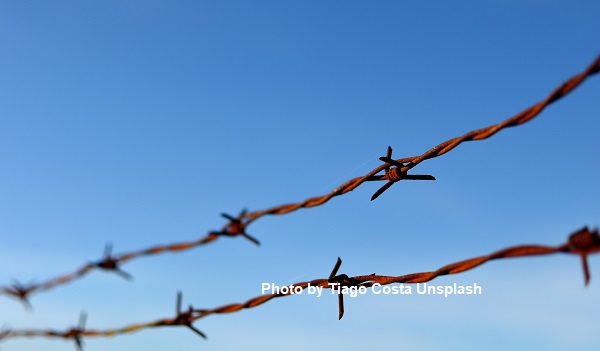Poland refuses European Commission push for a Frontex deployment at its border with Belarus as pressure on the government grows. Lithuania has proposed the legalisation of pushbacks at the EU level in “extreme” situations. Belarus suspends return agreements with the EU and people on the move are caught in the middle.
Poland is facing critique by the UN Human Rights Office (OHCHR) and NGOs over pushbacks as well as demands from the European Court of Human Rights (ECtHR) for the provision of support at the border where at least six people have lost their lives. The influential Catholic church appealed on 4 October for humanitarian assistance and the launch of humanitarian corridors for refugees from Iraq, Syria and elsewhere. “Medical and humanitarian aid for migrants should be a priority for both the state and non-governmental organisations,” stated an appeal by Archbishop Stanisław Gądecki, noting also “The inalienable dignity of every human being, regardless of their status, origin or religion, and the law of brotherly love, urge us to help them”.
EU Commissioner for Home Affairs Ylva Johansson also raised “the issue and importance of transparency” at the border with Polish Interior Minister Mariusz Kamiński in order to make sure that “when we protect our borders, we also protect our values and the EU acquis”. The Commissioner also pushed for direct EU involvement at the border saying: “I think it could be a good idea to invite Frontex to be part at the Polish-Belarusian border to also visibly show that this is an European protection of the border and also because we have expertise in Frontex”. However, the meetings with Kamiński didn’t result in deployment of the agency. Meanwhile, Frontex Executive Director Fabrice Leggeri was “impressed” with Polish security measures and thanked Poland for its cooperation with his agency when visiting the border on 4 October.
Rather than accepting involvement of the Warsaw based EU agency, the Polish government rely on the deployment of 4,000 border guards and 25,000 soldiers and the building of an “impenetrable wall“ to defend “Nato and EU borders with full determination” against what it has dubbed a “hybrid aggression” by Belarus. Polish authorities registered 601 attempts to cross the border on 1 October and claims to have prevented 8,000 out of 9,400 attempts since August. In response to queries about pushbacks a spokesperson for the Polish border guards stated that, because they know they will be deported if their applications are rejected: “foreigners do not want to submit applications in Poland” and instead “want to submit them in Germany”. According to Polish authorities only 44% of people detained at closed centres in Poland have applied for international protection. German police report increased arrivals at the border with Poland and have detained hundreds of people from Iraq, Yemen and Syria, many of whom are believed to have crossed from Belarus.
Lithuania has proposed a change of EU law to legalise pushbacks, the practice of expelling people without allowing them to apply for asylum. “In such situations when there’s an extreme situation, and illegal migrants are being used as an instrument to put pressure on countries, countries have the right to make such decisions [like] the ones we have made in our national law, i.e. to prevent illegal entrance,” Lithuanian Interior Minister Agnė Bilotaitė said. According to European Commission Vice-President Margaritis Schinas, Lithuania is not alone in its ambition and several member states share such ideas. In response to recent documentation of pushbacks along EU borders, ECRE Director Catherine Woollard called such measures: “both illegal and morally repugnant” and urged the European Commission to “get tougher” on non-compliance with EU law, noting: “We see a situation of tolerance of these actions, or one that can be described as impunity when it comes to what are clear violations taking place”. At national level the undermining of the right to seek asylum has already occurred. The Polish government is in the process of changing legislation to deny asylum seekers their right to apply for protection at the border. A draft law approved by the lower house of parliament was met with strong critique by the UN Refugee Agency (UNHCR). Amendments to the Law on the Legal Status of Aliens were adopted in Lithuania in July and August 2021 that according to ECRE “may result in limited access to the asylum procedure, automatic detention of asylum applicants, restrictions on the right to appeal, and restrictions on other rights of people seeking asylum”. On 1 October, 93 people were prevented from entering Lithuania within 24 hours, and on 4 October again within 24 hours another 49 people were prevented from entering. Both figures were confirmed by the State Border Guard Service (SBGS) also stating that more than 3,000 people have been prevented from crossing the border from Belarus since early August.
On the other side of the border, the Belarussian parliament voted on 4 October to suspend an agreement with the EU from 2020 to take back migrants. The measure was announced by Belarusian strongman Alexander Lukashenko in June in an attempt to stop EU sanctions imposed on his regime. Parliament speaker Vladimir Andreichenko noted that the agreement stipulates that each party may partially or totally suspend the agreement temporarily, if it officially notifies the other party. Solidar Foundation stated that: “Migrants are the only victims as Belarus, Lithuania, Latvia, Poland and the EU are battling for border control and political gains”. The organisation highlighted that thousands of migrants, predominantly Kurds from Iraq, are now stuck in detention centres under poor conditions, facing deportation or are being pushed back to Belarus.
For further information:
- ECRE, Editorial: Geopolitics and Death in a Field, October 2021
- ECRE, Poland: More Deaths at the Border, Poland Extends State Of Emergency, Neither ECtHR nor Commissioner Persuade Poland to End Pushbacks, October 2021
Photo by Tiago Costa on Unsplash
This article appeared in the ECRE Weekly Bulletin. You can subscribe to the Weekly Bulletin here.

